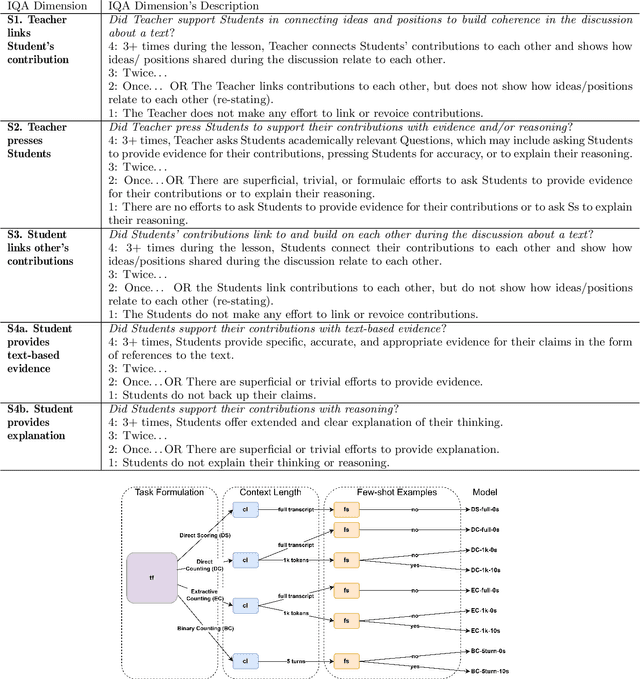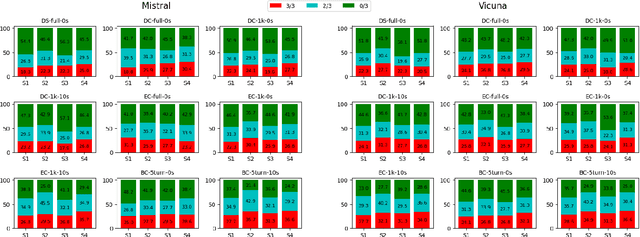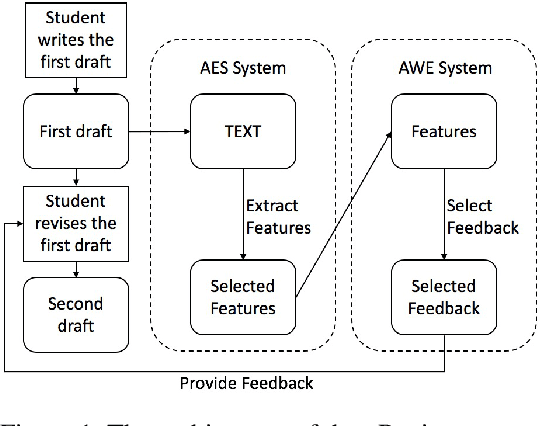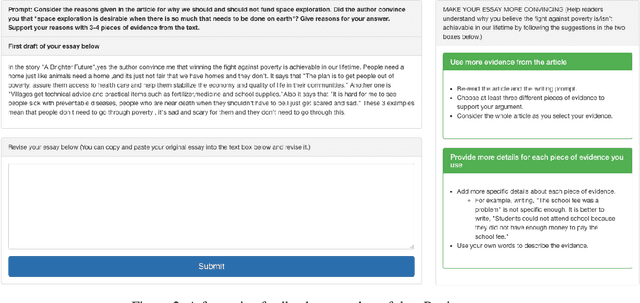Lindsay Clare Matsumura
University of Pittsburgh
Report from Workshop on Dialogue alongside Artificial Intelligence
Nov 11, 2025Abstract:Educational dialogue -- the collaborative exchange of ideas through talk -- is widely recognized as a catalyst for deeper learning and critical thinking in and across contexts. At the same time, artificial intelligence (AI) has rapidly emerged as a powerful force in education, with the potential to address major challenges, personalize learning, and innovate teaching practices. However, these advances come with significant risks: rapid AI development can undermine human agency, exacerbate inequities, and outpace our capacity to guide its use with sound policy. Human learning presupposes cognitive efforts and social interaction (dialogues). In response to this evolving landscape, an international workshop titled "Educational Dialogue: Moving Thinking Forward" convened 19 leading researchers from 11 countries in Cambridge (September 1-3, 2025) to examine the intersection of AI and educational dialogue. This AI-focused strand of the workshop centered on three critical questions: (1) When is AI truly useful in education, and when might it merely replace human effort at the expense of learning? (2) Under what conditions can AI use lead to better dialogic teaching and learning? (3) Does the AI-human partnership risk outpacing and displacing human educational work, and what are the implications? These questions framed two days of presentations and structured dialogue among participants.
eRevise+RF: A Writing Evaluation System for Assessing Student Essay Revisions and Providing Formative Feedback
Jan 01, 2025Abstract:The ability to revise essays in response to feedback is important for students' writing success. An automated writing evaluation (AWE) system that supports students in revising their essays is thus essential. We present eRevise+RF, an enhanced AWE system for assessing student essay revisions (e.g., changes made to an essay to improve its quality in response to essay feedback) and providing revision feedback. We deployed the system with 6 teachers and 406 students across 3 schools in Pennsylvania and Louisiana. The results confirmed its effectiveness in (1) assessing student essays in terms of evidence usage, (2) extracting evidence and reasoning revisions across essays, and (3) determining revision success in responding to feedback. The evaluation also suggested eRevise+RF is a helpful system for young students to improve their argumentative writing skills through revision and formative feedback.
Analyzing Large Language Models for Classroom Discussion Assessment
Jun 12, 2024



Abstract:Automatically assessing classroom discussion quality is becoming increasingly feasible with the help of new NLP advancements such as large language models (LLMs). In this work, we examine how the assessment performance of 2 LLMs interacts with 3 factors that may affect performance: task formulation, context length, and few-shot examples. We also explore the computational efficiency and predictive consistency of the 2 LLMs. Our results suggest that the 3 aforementioned factors do affect the performance of the tested LLMs and there is a relation between consistency and performance. We recommend a LLM-based assessment approach that has a good balance in terms of predictive performance, computational efficiency, and consistency.
Utilizing Natural Language Processing for Automated Assessment of Classroom Discussion
Jun 21, 2023


Abstract:Rigorous and interactive class discussions that support students to engage in high-level thinking and reasoning are essential to learning and are a central component of most teaching interventions. However, formally assessing discussion quality 'at scale' is expensive and infeasible for most researchers. In this work, we experimented with various modern natural language processing (NLP) techniques to automatically generate rubric scores for individual dimensions of classroom text discussion quality. Specifically, we worked on a dataset of 90 classroom discussion transcripts consisting of over 18000 turns annotated with fine-grained Analyzing Teaching Moves (ATM) codes and focused on four Instructional Quality Assessment (IQA) rubrics. Despite the limited amount of data, our work shows encouraging results in some of the rubrics while suggesting that there is room for improvement in the others. We also found that certain NLP approaches work better for certain rubrics.
eRevise: Using Natural Language Processing to Provide Formative Feedback on Text Evidence Usage in Student Writing
Aug 06, 2019



Abstract:Writing a good essay typically involves students revising an initial paper draft after receiving feedback. We present eRevise, a web-based writing and revising environment that uses natural language processing features generated for rubric-based essay scoring to trigger formative feedback messages regarding students' use of evidence in response-to-text writing. By helping students understand the criteria for using text evidence during writing, eRevise empowers students to better revise their paper drafts. In a pilot deployment of eRevise in 7 classrooms spanning grades 5 and 6, the quality of text evidence usage in writing improved after students received formative feedback then engaged in paper revision.
* Published in IAAI 19
 Add to Chrome
Add to Chrome Add to Firefox
Add to Firefox Add to Edge
Add to Edge